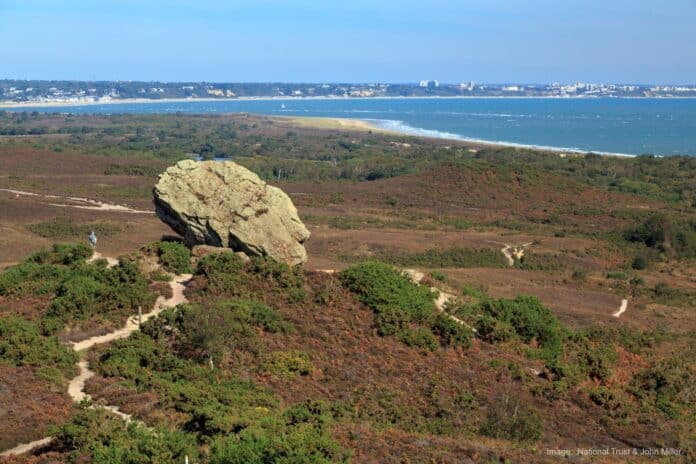Dorset boasts a treasure trove of natural wonders. Amidst its picturesque landscapes and stunning coastlines, lies the crown jewel of conservation—the Super National Nature Reserve. Spanning across vast expanses of diverse ecosystems, this reserve stands as a testament to humanity’s commitment to preserving the planet’s biodiversity. From rare species to breathtaking landscapes, the Super National Nature Reserve in Dorset encapsulates the essence of ecological stewardship.
- Biodiversity Hotspot: Dorset’s Super National Nature Reserve is a haven for biodiversity. With its unique geographical location, the reserve harbors a remarkable array of flora and fauna. From ancient woodlands to wetlands, heathlands, and coastal habitats, this natural sanctuary accommodates diverse ecosystems within its boundaries. Its incredible variety of habitats supports an extraordinary range of plant and animal species, many of which are rare or endangered. The reserve is a living museum of biodiversity, contributing to the conservation of numerous species and the maintenance of essential ecological balances.
- Rich Avian Life: One of the most captivating features of the Super National Nature Reserve is its avian diversity. The reserve provides an ideal breeding ground and migratory stopover for a plethora of bird species. The coastal areas offer a vital sanctuary for wading birds, gulls, and terns. The heathlands attract rare birds such as Dartford warblers and nightjars. Moreover, the cliffs and offshore islands serve as nesting sites for thousands of seabirds, including guillemots, puffins, and razorbills. Birdwatchers from far and wide flock to this reserve, eager to witness the mesmerizing spectacle of avian life in action.
- Protected Marine Environment: Beyond its terrestrial wonders, the Super National Nature Reserve extends its guardianship to the surrounding marine environment. The coastal waters within its jurisdiction teem with life, from colorful coral reefs to seagrass meadows and kelp forests. These marine ecosystems provide a vital habitat for numerous marine species, including fish, crustaceans, and marine mammals. The reserve’s protected status ensures that these fragile marine ecosystems remain free from harmful human interference, enabling the flourishing of marine biodiversity.
- Educational and Recreational Opportunities: The Super National Nature Reserve in Dorset is not only a sanctuary for wildlife but also a source of education and recreation for visitors. The reserve offers a range of educational programs, guided tours, and nature trails, allowing visitors to learn about the local ecosystems and the importance of conservation. Nature enthusiasts can explore the diverse landscapes, capturing breathtaking vistas and immersing themselves in the tranquility of the reserve. The abundance of recreational activities, such as hiking, birdwatching, and nature photography, makes the reserve a haven for those seeking solace in nature.
Dorset’s Super National Nature Reserve stands as a testament to the power of conservation and the remarkable beauty of the natural world. Its diverse ecosystems, rich avian life, and protected marine environment make it an ecological gem of global significance. As we navigate an era of environmental challenges, this reserve serves as a shining example of humanity’s commitment to safeguarding our planet’s biodiversity. The Super National Nature Reserve in Dorset is not just a place; it is a testament to our collective responsibility to protect and cherish the wonders of the natural world.
The National Trust: Working together for a national nature reserve
We know that working together with like-minded partner organisations has a greater impact on protecting the environment and the recovery of nature.
To this end, the National Trust has forged a national nature reserve in partnership with Natural England, RSPB, Forestry England, the Rempstone Estate Trust, Dorset Wildlife Trust, and Amphibian and Reptile Conservation Trust, along with other landowners and managers.
Spanning 8,231 acres, the ‘super’ reserve at Dorset’s Purbeck Heaths brings together 11 priority habitats, allowing animals, reptiles, birds and insects to move more easily across the landscape and adapt to the challenges brought by the climate crisis.
This will be of great benefit to a variety of rare wildlife, including the sand lizard, the Dartford warbler and the silver-studded blue butterfly.

Top facts on the UK’s first ‘super’ nature reserve
- The new site combines three existing national nature reserves at Stoborough Heath, Hartland Moor, and Studland and Godlingston Heath.
- The site is made up of a rich mosaic of lowland wet and dry heath, valley mires, acid grassland and woodland, coastal sand dunes, lakes and saltmarsh.
- The expansion will create the largest lowland heathland nature reserve in the country, allowing wildlife to thrive.
- Purbeck Heaths is home to at least two fungi that are found nowhere else in England and Wales – the sand earthtongue and Roseodiscus formosus.

Wildlife at Purbeck Heaths
Purbeck Heaths is one of the most biodiverse places in the UK. The precious landscape on the shores of Poole Harbour is home to thousands of species including over 450 that are listed as rare, threatened or protected.
Heathland birds, such as nightjar, Dartford warbler and woodlark, are regularly seen, as are larger birds of prey, including hen harrier, merlin and osprey.
The area is also home to Britain’s rarest dragonfly – the southern damselfly – and Dorset’s only colony of small pearl-bordered fritillary butterflies. Then there are the rare reptiles (smooth snakes and sand lizards) and at least 12 species of bats.
Among the many unsual plants that flourish at Purbeck Heaths are marsh gentians, great sundews and lesser butterfly orchids.
Amongst all of the carnage Dorset is blessed with the life source of nature and should be treasured.
Join us in helping to bring reality and decency back by SUBSCRIBING to our Youtube channel: https://www.youtube.com/channel/UCQ1Ll1ylCg8U19AhNl-NoTg and SUPPORTING US where you can: Award Winning Independent Citizen Media Needs Your Help. PLEASE SUPPORT US FOR JUST £2 A MONTH https://dorseteye.com/donate/







